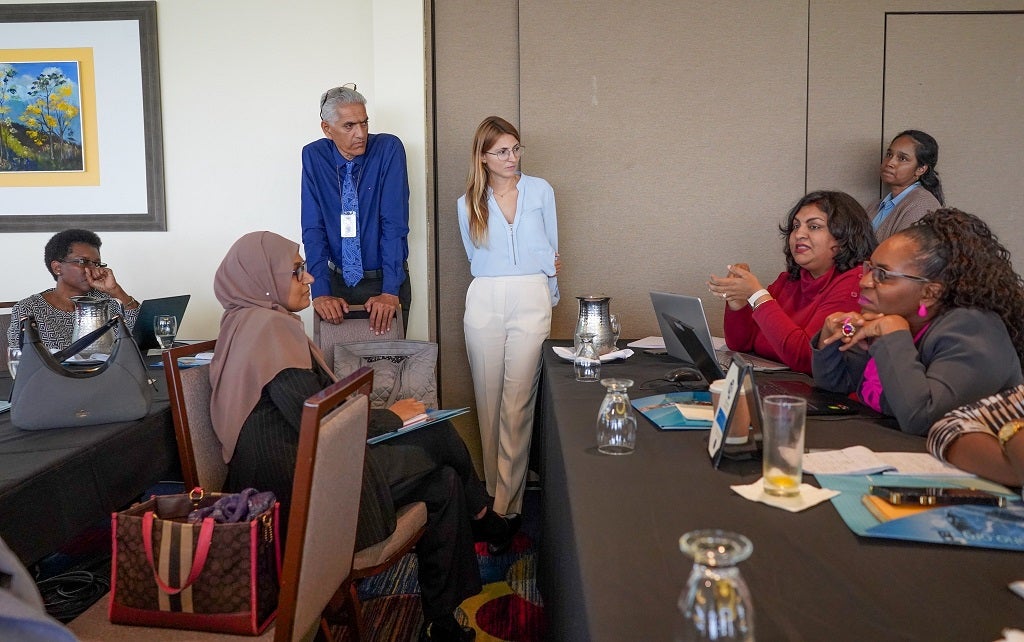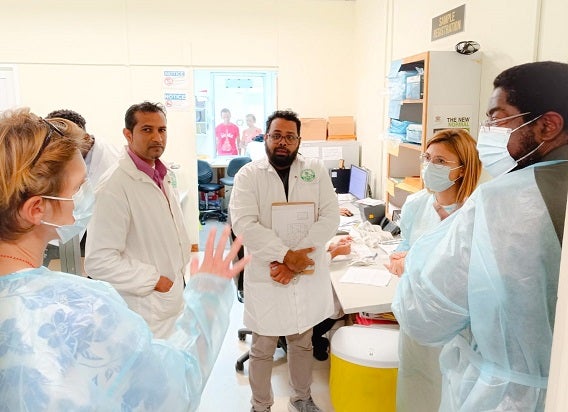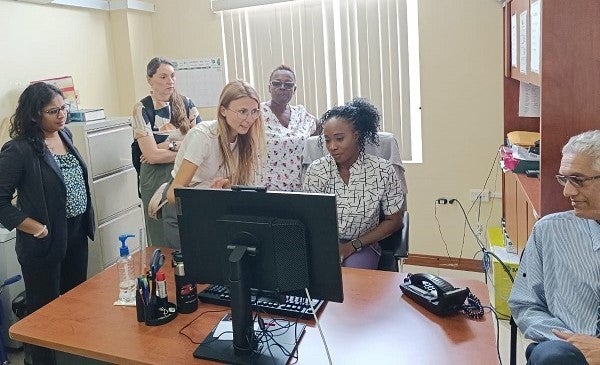
Port of Spain, 1 October 2024 - The PAHO/WHO TTO Country Office recently hosted a mission in Trinidad and Tobago which focused on enhancing the country’s ability to track and monitor the spread of respiratory viruses. The aim of the mission was to strengthen the systems that detect these viruses. By improving these systems, the country is better poised to handle future outbreaks and keep communities safe.
Respiratory viruses like influenza (flu), SARS-CoV-2 (which causes COVID-19), and other similar viruses can spread quickly, leading to serious illness and disruptions to daily life. By improving how we monitor and respond to these viruses, health authorities can catch outbreaks early and put measures in place to control their spread. This helps to prevent hospitals from being overwhelmed and ensures that medical resources are available when needed.
This mission was a collaborative venture with input from the Ministry of Health, Trinidad and Tobago, the PAHO/WHO Trinidad and Tobago Country Office and the Respiratory Viruses Team of the Infectious Hazards Management (IHM) Unit from PAHO/WHO Headquarters. The international subject matter experts from IHM collaborated closely with local specialists throughout the mission. This partnership allowed for the sharing of global best practices, ensuring that Trinidad and Tobago’s National Sentinel Surveillance Plan is not only tailored to the country’s specific needs but also aligned with regional standards.
At the heart of this mission was a two-day workshop that brought together key epidemiology and laboratory personnel from sentinel sites, Regional Health Authorities, the national Epidemiology Division, regional laboratories, and the national reference laboratory. This collaborative effort ensured that stakeholders across different sectors understood their roles in the effective monitoring and management of respiratory virus outbreaks.
In addition to the workshop, site visits to the Trinidad Public Health Laboratory, the laboratory at the Sangre Grande Hospital in Trinidad, and the Scarborough General Hospital in Tobago were conducted. At each site the visiting team walked through the processes involved in sentinel surveillance, meeting with key personnel and addressing any concerns. The interactive nature of these visits facilitated real-time feedback and knowledge sharing, further solidifying the country’s readiness to respond to public health threats.
One of the key outcomes of the workshop was the creation of a roadmap to implement the sentinel surveillance system, including finalizing guidelines, piloting an electronic data platform, and establishing workflows at identified hospital sentinel sites. The development of Standard Operating Procedures (SOPs) and training materials will guide staff at sentinel sites and the Trinidad Public Health Laboratory, focusing on data management, case definitions, and timely reporting and testing.
The mission culminated in the completion of the Final Draft of the National Sentinel Surveillance Plan for Trinidad and Tobago, which will position the country to detect, monitor and respond to seasonal circulation of respiratory viruses and potential outbreaks more effectively.
As a follow up to the mission, PAHO/WHO communication materials were distributed to participants to provide guidance on the proper collection and storage of samples for diagnosing influenza and other respiratory viruses. These resources provide clear instructions on handling specimens to ensure accurate testing and timely reporting. By sharing these materials, PAHO/WHO aimed to equip healthcare professionals and laboratory staff with the knowledge needed to maintain high standards in sample collection, ultimately enhancing the effectiveness of the surveillance system in detecting respiratory viruses.
Through initiatives like this, PAHO/WHO remains committed to supporting national health systems in Trinidad and Tobago, ensuring they are equipped to handle emerging public health challenges and protect the well-being of all citizens.






